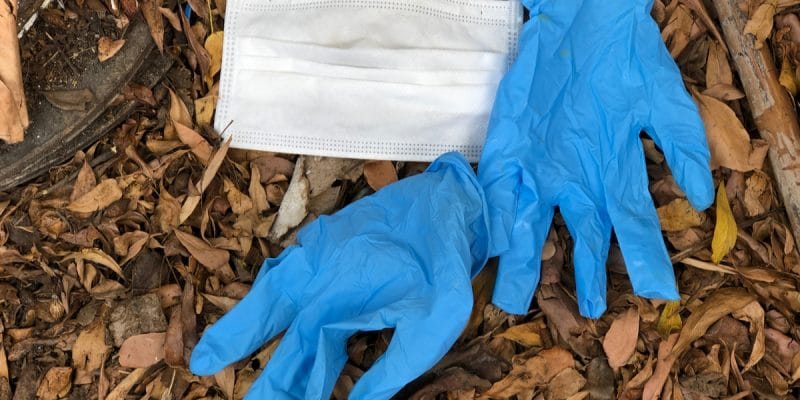In the face of the spread of the coronavirus, the waste treatment sector is a matter of concern to the Tunisian authorities. They have just announced measures to protect against cases of infection linked to the management of waste potentially carrying the virus.
Workers in the waste sector are among the professionals most exposed to coronavirus contamination. In Tunisia, where the pandemic has resulted in 8 deaths and 278 cases of contamination as of March 28, 2020, the government has recognised the danger incurred by garbage collectors, ragpickers and plastic collectors. The Tunisian Ministry of the Environment thus deplored, in a press release published on March 21, 2020, the absence of a strategic plan to fight against the coronavirus, in particular, at the level of household waste concerning people contaminated by Covid19 or those quarantined.
To reduce the risks of coronavirus transmission in waste management in Tunisia, the Ministry of the Environment has decided to work with the Ministry of Public Health. This collaboration aims to control the management of waste produced by hospitals sheltering Covid19 contaminated persons or quarantined subjects, through companies authorized to collect healthcare waste. The Department of the Environment has also recommended that the agencies under its supervision approach the local authorities for the proper disposal of this waste by disinfecting or incinerating it.
In Tunisia, the management of hazardous waste is being questioned
Tunisian authorities’ interest in protecting garbage collectors from coronavirus was prompted by denunciations from civil society. Following the declaration of the first cases of coronavirus contamination in Tunisia, the Tunisian Forum for Economic and Social Rights (FTDS) expressed its concern about “the carelessness of the authorities, despite repeated warnings from experts concerning the treatment of hazardous waste”. In particular, the organisation demanded the adoption of exceptional and national measures to avoid turning waste into a source of contamination at Covid-19. As such, the Ministry of Public Health was called upon to provide the local authorities with a list of persons in quarantine in each municipality, in order to put in place an anticipated prevention plan against the risks of contamination.
Thus, for the FTDS, household waste produced by infected persons must be treated in the same way as hazardous waste.
However, the management and disposal of hazardous waste still need to be perfected in Tunisia. Industrialists most often have recourse to the storage of these wastes in limited spaces. This does not solve the problem of pollution. According to official figures published in 2016, Tunisia produces 150,000 tons of hazardous industrial waste and 16,000 tons of health care waste every year. Waste that is either stored or dumped at sea…
Boris Ngounou







